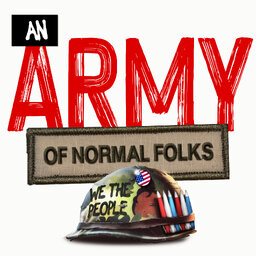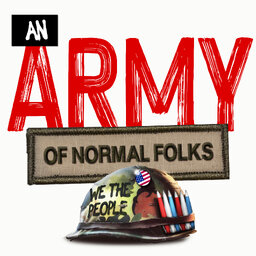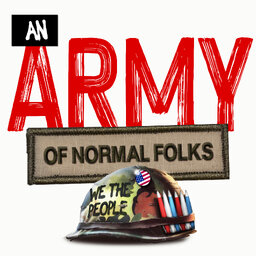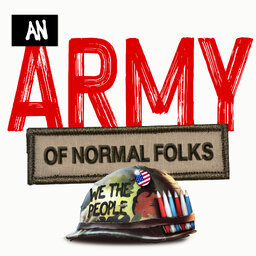Tara Sundem: Helping Babies With Opioid Withdrawal (Pt 1)
Tara is a NICU nurse who experienced the epidemic of newborns withdrawing from their moms’ drugs that they got in the womb. And she also experienced that they weren’t given great treatment. Tara stumbled into a solution that’s better for everyone (babies, parents, taxpayers), and her Hushabye Nursery has helped 695 infants & their families!
In 1 playlist(s)
An Army of Normal Folks
Our country’s problems will never be solved by a bunch of fancy people in nice suits talking big wor…Social links
Follow podcast
Recent clips

How to Turn Your Spending Into Someone's Second Chance (Pt 1)
33:45

How to Turn Your Spending Into Someone's Second Chance (Pt 2)
1:14:58

How America Lost “We” — And How You Can Help Rebuild It Today
16:17
 An Army of Normal Folks
An Army of Normal Folks